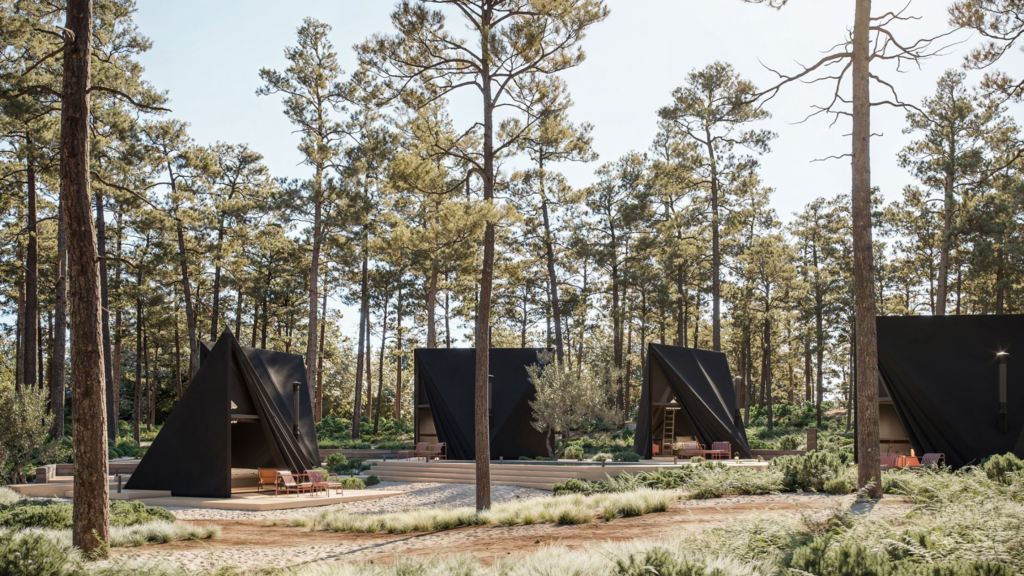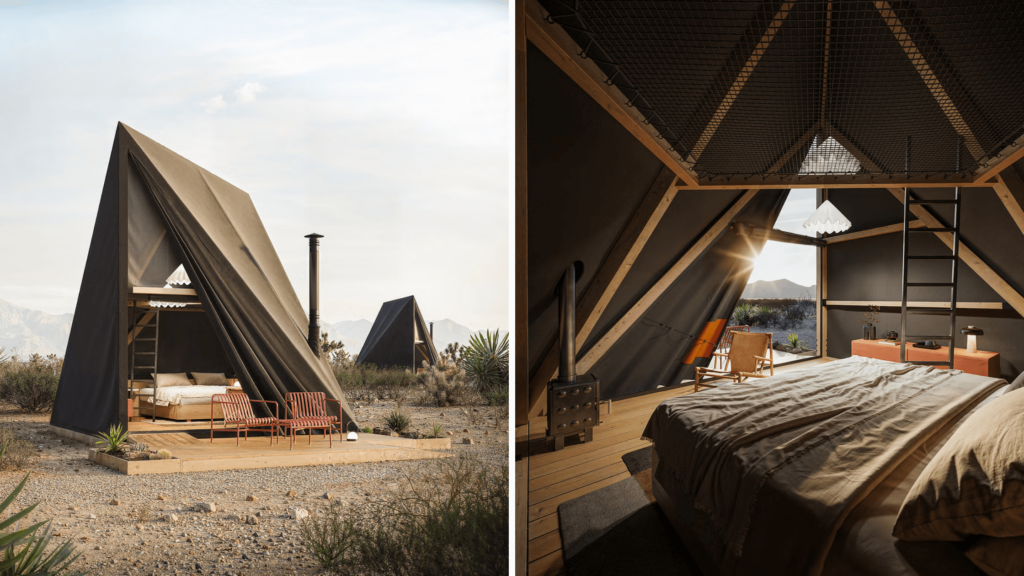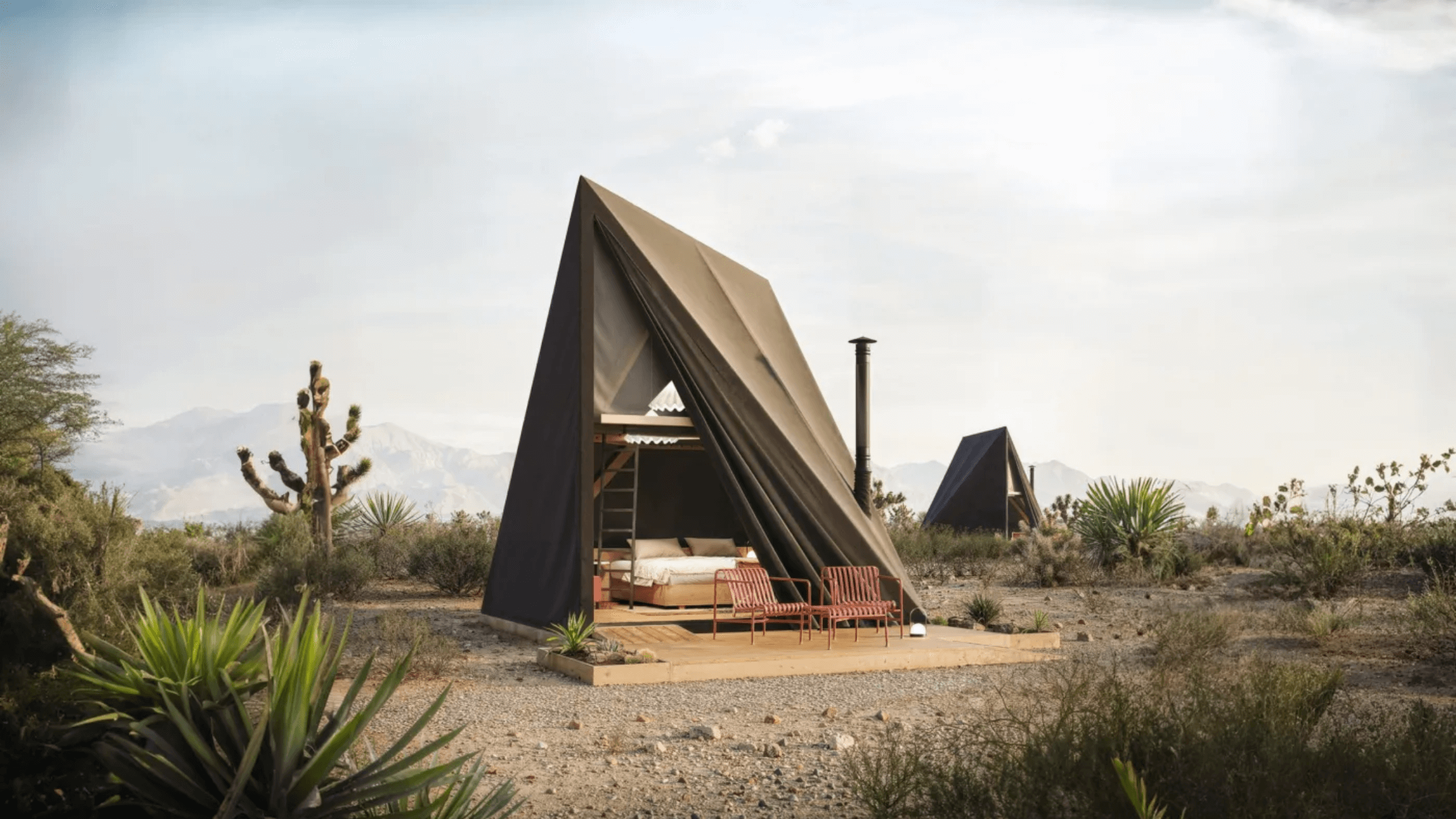Sustainable travel is on the rise, with eco-conscious travelers seeking unique experiences that minimize environmental impact. The hospitality industry is adapting to meet this demand, and the Softshell tent is a shining example. A collaboration between Bjarke Ingels Group (BIG) and Nokken, this innovative timber-framed tent combines elegant design with sustainable materials, offering a perfect solution for eco-resorts, glamping sites, and boutique accommodations.

Design that balances style and sustainability
This Softshell tent comes with a glulam timber frame—a durable and eco-friendly material made from layered wood glued together for added strength. This type of wood provides structural integrity much stronger than traditional wood and has a lower carbon footprint than steel or concrete. Glulam timber frame has grown in popularity in recent years and is likely to be used in future projects like this one.
The pitched roof of this tent reaches an impressive height of 4.75 meters, creating a spacious and two-floor airy interior. Inside, the open design maximizes natural light, creating a cozy and inviting space for guests. On the outside, a cotton-mix canvas in customizable colors wraps the structure, providing a climate-resilient exterior while blending seamlessly into the natural surroundings. This glamping tent is genuinely one of a kind.
Top sustainable features of the Softshell design

This 18-square-meter tent doesn’t just look good; it’s built with sustainability in mind. Here are some of its top features:
- Mass timber frame: Using mass timber, the Softshell minimizes its carbon footprint compared to traditional materials, supporting eco-friendly construction practices.
- Modular foundation: The tent is built on a lightweight timber foundation that adapts to uneven terrain without invasive groundwork, preserving the local environment.
- Customizable upgrades: Optional features like a cargo net, ladder, and bedhead enhance functionality while reducing waste by tailoring each unit to specific needs.
Paving the way for low-impact luxury
The Softshell tent is another win for sustainable design. With pre-orders available starting at €18,950, this timber-framed tent is a must-have for future glamping sites and business owners. The glamping market in North America is growing with an impressive annual growth rate of 12.9% per year and is expected to reach $2.54 billion by 2033. This makes it an excellent opportunity for eco-minded entrepreneurs. There is no doubt the future of hospitality is looking greener every year, and what better way to enter it than using a sustainable and stylish design.
About BIG and Nokken
Bjarke Ingels Group (BIG) is a globally renowned architecture firm known for its innovative, sustainable designs that challenge conventional norms. Known for projects like VIA 57 West in New York and the CopenHill waste-to-energy plant, BIG combines creativity with functionality. Nokken specializes in modular, sustainable accommodation solutions that cater to the growing demand for eco-conscious travel. Together, their collaboration brings a wealth of expertise in design and sustainability to the Softshell project.
Want to explore more cutting-edge sustainable designs? Sign up for our newsletter and stay inspired with the latest updates in construction and design.


